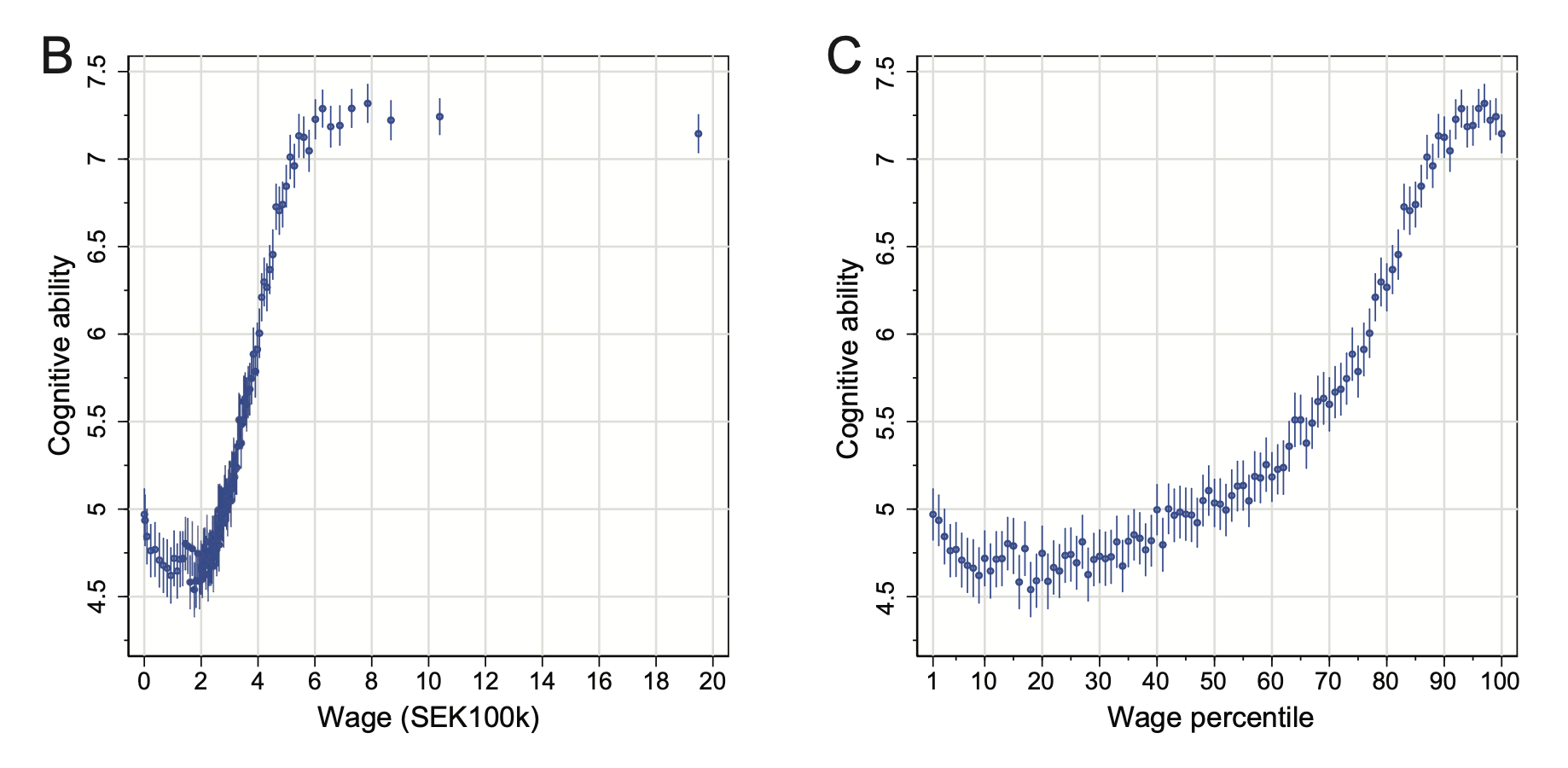The highest earning men aren’t especially intelligent. What explains their success?

- A new study out of Sweden finds that cognitive ability is strongly linked to higher earnings — until the very top of the income ladder. Intelligence among the top 5% of earners plateaus and even decreases slightly.
- The findings suggest that other factors drive extreme success, including luck, family resources, ambition, and emotional intelligence.
- The highest earners in society are often revered, but they are by no means more intelligent, or deserving, than the rest of us.
In capitalist societies, we like to think that the greatest rewards go to the most deserving individuals — namely, the smartest people who work the hardest. A team of researchers from institutions in Sweden and the Netherlands sought to find out if this really is the case. In their study, published at the end of January in the journal European Sociological Review, they probed how cognitive ability correlated with annual earnings among Swedish men.
A Swedish study
For decades, Sweden has had a conscription system in which young men are enlisted to serve for a year in the country’s armed forces. (In 2010, women were also included.) As part of their military intake testing, recruits complete an in-depth exam of their cognitive abilities. The researchers used this data from 59,387 men who were assessed during 1971–1977 or 1980–1999 and correlated it with their future average annual earnings as reported in government data.
As one would expect, the researchers found that cognitive ability strongly correlated with higher earnings. However, at the very top — corresponding to the top 5% of earners — cognitive ability tended to level off and even drop slightly. “Past a certain wage threshold, having a higher wage is no longer telling of cognitive ability,” the authors summarized.

There are numerous potential explanations for this intriguing find. The researchers specifically mentioned two: luck and family resources. With luck, one thinks of the long-time entrepreneur whose product suddenly takes off thanks to celebrity backing, or the media figure whose act goes viral, propelling them into stardom. Regarding family resources, one thinks of inherited wealth and connections with others already in high-earning positions.
“The class and network advantages of those with elite family backgrounds are assumed instrumental for gaining access to the most privileged and best-paying jobs,” the researchers wrote.
The authors also noted that the most cognitively demanding jobs, which usually attract smarter people, might not necessarily pay the most. In the U.S., for example, teachers are often thought to be underpaid for what they provide.
The role of lagom and emotional intelligence
Another potential factor is ambition. People with the highest cognitive abilities, who already tend to earn well-paying salaries, might reason that they don’t need to work harder for more money, especially if the added effort comes at the expense of time spent with friends and family or undertaking enjoyable hobbies. In Sweden, where the study took place, there’s actually a philosophy called lagom which encourages “trying to find balance and moderation rather than constantly grasping for more.”
Prior research sheds light on another reason why the most intelligent aren’t necessarily the highest paid: the smartest people sometimes lack emotional intelligence, “the capacity for recognizing our own feelings and those of others, for motivating ourselves, and for managing emotions well in ourselves and in our relationships.” Advancing in one’s career often requires being liked by your co-workers and superiors just as much as excelling at your job.
A couple key takeaways from the current research: First, while cognitive ability certainly propels you to higher earnings, it can only take you so far. Second, the highest earners in society are often revered, but they are by no means more intelligent, or deserving, than the rest of us.





